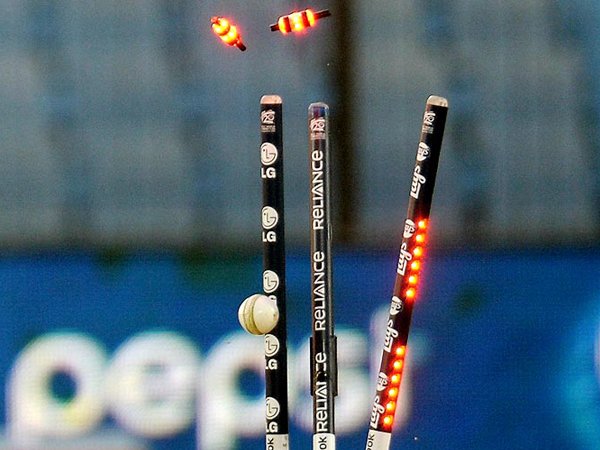Tech talk #9 how LED wicket works?
Hey guys if you want to know how LED wicket works than see my this post👇👇👇
The innovation was conceived by Bronte EcKermann, an Australian mechanical industrial designer, and created by South Australian manufacturer Zing International. It is called the Zing Wicket System.
It was first tried out in a club game in Adelaide. Once Cricket Australia was convinced about using it instead of the wooden stumps for night matches, it was decided that it would be used in the 2012 edition of the Big Bash League in Australia.
The technology was introduced after three years of intense research.
The International Cricket Council used it for the first time during the semi-finals and final of the recent Under-19 Cricket World Cup in the UAE.
Besides the ICC under-19 World Cup, the stumps have been used in T20 competitions in New Zealand, Australia and the West Indies. India could see the use of LED stumps and bails in the upcoming seventh edition of the Indian Premier League.
With conventional bails, it is difficult for the umpire to tell when the bail is 'completely dislodged’. A bail is only 'completely dislodged’ from a wicket when BOTH spigots have separated from their stump grooves.
Low voltage batteries are incorporated in each of the bails and stumps.
A microprocessor in each bail detects when BOTH spigots are dislodged from the stump grooves.
- The wickets come fitted with LED. The bails also have an in-built sensor than can determine if a wicket is broken, in just 1/1000th of a second.
They are made of composite plastic and the LEDs glimmer at the slightest impact with the ball.
The stumps and bails illuminate when dislodged. When the wicket is broken, the bails flash bright red LED light.
Even if a wicketkeeper makes a stumping, the lights flash. It helps the umpires to come up with correct decisions especially during close stumping and run-outs.
Each bail costs as much as an iPhone.
A complete set required for a match costs $40,000, approximately Rs 25 lakh!.
Thank you
